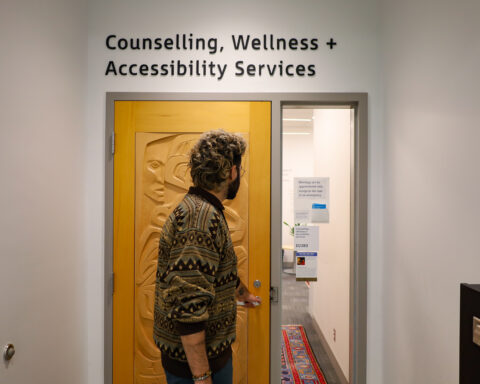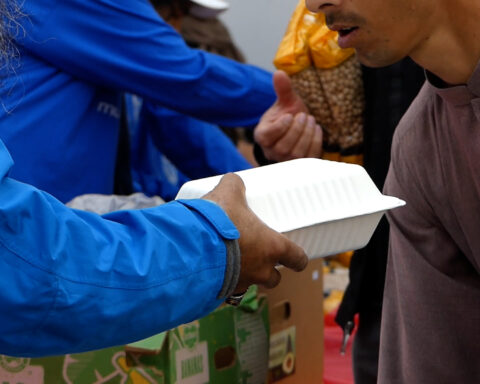A lack of connections and social support are often the source of mental health issues and depression for new immigrants, according to a new study by Mental Health Research Canada.
The study surveyed 2,152 newcomers who had been in Canada for 15 years or less in order to build a comprehensive overview of their mental health experiences.
Researchers found that about one-half of newcomers are likely to have symptoms of severe mental health distress. These findings underscore the significance of various factors such as housing instability, food insecurity, and a lack of community support, they said.
Immigrants reported having a lower percentage of “people to count on,” with an average of 36 per cent indicating they had support networks compared to 52 per cent of Canadians.
North Vancouver resident Sheyda Kamran said she struggles with her language skills and building healthy relationships. These difficulties have left her feeling isolated and disconnected from the community.
Kamran came to Canada from Iran with her husband and one-year-old daughter more than 13 years ago.
Kamran said newcomers rely on friends and the community for emotional support when they move to Canada.
“Without support, it can be challenging to navigate the struggles and adapt to everything in a new country. This, in turn, may lead to stress and depression,” Kamran.
Kamran struggles to build robust relationships due to a lack of consistent interaction with friends, making it difficult to establish trust.
“When you are scared around people, trusting and building new relationships becomes challenging,” she said. “It’s difficult for you to make friends and establish connections.
Other research suggests that immigrants often experience higher levels of loneliness due to the challenges of migrating from one country to another. Many face social disruption and increased isolation, while also encountering distress as they find their way in Canada.
Rijul Tuteja, a Vancouver resident from India, highlighted the impact of a lack of connection, attributing it to the fear associated with adapting to a new environment.
“It is more a question of perspective where one person does not communicate with another out of fear, which leads to them not discussing their problems and that can be dangerous as it can impact the quality of their life.”
Language barriers are one of the main challenges for newcomers as they cannot express themselves and feel isolated. This leads to depression, isolation, and mental health issues for newcomers, according to the study.
“I still find myself as a lonely immigrant in need of improving my language and cultural knowledge to make friends,” Kamran said.
Newcomers who have family or friends here from their home country feel connected to those specific people, but not to the community at large in Canada, the study found. Without connections to the wider community, they may not feel welcome or safe in public places which causes stress and depression.
Kamran said she thinks that building strong friendships, and keeping them, requires energy and sacrifice. “I do not know how possible it is to communicate when you’re exhausted from facing many challenges.”
When Tuteja moved to Canada from India in 2019, he decided to communicate more with people outside the Indian community.
“I was more about making friends with other community people when I first got here,” he said. “It was more about exploring different unique personalities which I had not been exposed to before.”
Diary Marif is an Iraqi Kurdish journalist based in Vancouver, Canada. His writing has appeared in the Awene weekly, Livin, and on KNNC TV as a documentary researcher by the name Diary Khalid. Diary earned a master's degree in History from Pune University, in India, in 2013. He moved to Vancouver in 2017, where he has been focusing on nonfiction writing. He can be found on Twitter: @diary_khalid.





